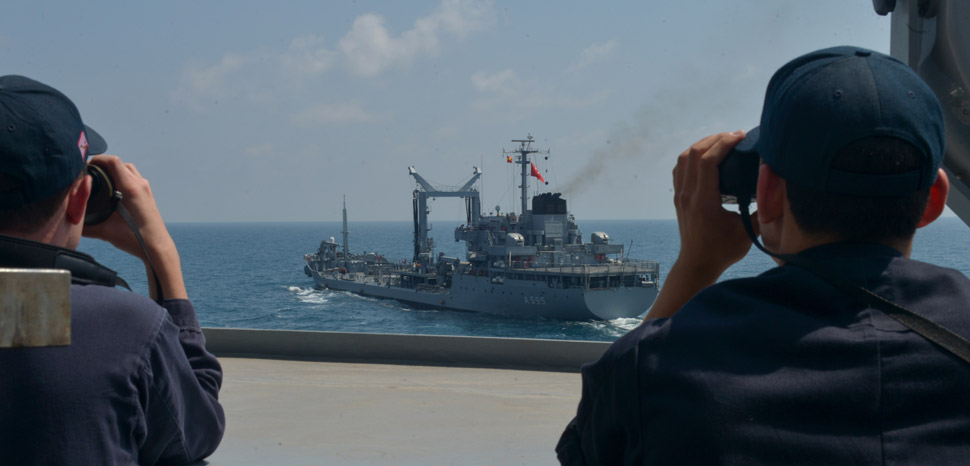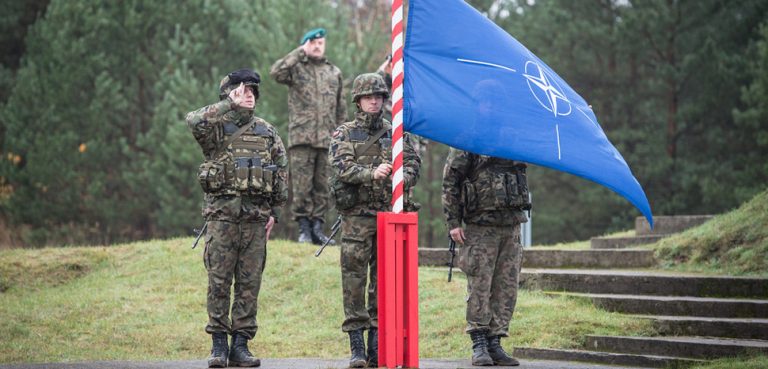Point counterpoint is a new series where two analysts assess a pertinent geopolitical issue from opposing points of view. Neither represents an official stance of Geopoliticalmonitor.com or any other institution the authors are associated with. The article in favor of Turkey remaining in NATO can be found here.
Turkey’s purchase of the Russian-made S-400 air defense system has angered the country’s NATO allies, the latest in a series of disagreements fueling a deterioration of Ankara’s relations with the West. The widening rift has some openly questioning the utility of Turkey’s ongoing presence in NATO, advocating for Ankara’s expulsion.
Given the past few years of geopolitical divergence between Turkey and the West – this might actually be the best course of action for the Alliance.
The fracture within: Turkey’s geopolitical drift from its NATO allies
Turkey has been a NATO member since 1952, and during the Cold War it represented the main bulwark against possible Soviet offensives on the Alliance’s southern flank. However, there have always been significant discrepancies between Ankara and its Western partners. While a certain divergence of interests and approaches is normal in a multilateral military alliance, the drift has been particularly pronounced in Turkey’s case.
First, Turkey has always had tense relations with Greece, another NATO member. The two engaged in open military clashes during the 1974 Cyprus crisis. Ankara occupied of the northern part of the island and established the Turkish Republic of Northern Cyprus, which is not recognized by the international community. This is an awkward situation for NATO members, especially after they condemned Russia’s annexation of Crimea. Greece and Turkey also have an unresolved dispute over the delimitation of their respective maritime and aerial zones in the Aegean. This has brought them to the brink of war in 1987 and 1996, and the Turkish military frequently violates Greek airspace. After the discovery of hydrocarbon deposits in the Eastern Mediterranean, Turkey has assertively advanced its rights and has not hesitated to confront Greece and Italy.
Contradictions also exist in the Middle East. Turkey hosts the important Incirlik air base (where US tactical nuclear warheads are stored) and is NATO’s gateway to the region. Yet it has been lukewarm in supporting America’s interests and that of other Western partners. Turkey stood still when the self-declared Islamic State (IS) emerged in Iraq and Syria, and has even been accused of having favored its rise and, at least initially, allowing the group to finance its terrorist activities by smuggling oil through Turkish territory. Ankara also conducted military operations to prevent the US-backed YPG Kurdish militia from taking control of a strip of Syrian and Iraqi land bordering its territory. Turkey’s relations with US allies like Saudi Arabia, Israel, and Egypt have been deteriorating in the past few years, whereas it has been fostering closer ties with adversaries like Russia and Iran. Turkey has also openly supported Qatar, which is subject to a Saudi-led blockade on the basis of its alleged support for Islamist movements and its cooperation with Iran. This has further aggravated the rift with other regional powers, with detrimental consequences for US policy in the Middle East.
Ankara’s relations with Western capitals have also become more strained owing to democracy and human rights issues. Turkey has experienced an authoritarian drift since Recep Tayyip Erdogan first came to power in 2003, a trend that intensified following the failed coup of 2016 and the subsequent purges. The Kurdish population remains discriminated against, and the government denies or at best downplays the genocide of the Armenians and other populations during the aftermath of WWI. Erdogan’s Islamist policies are also a matter of concern among its Western partners. For his part, Erdogan has not hesitated to compare European leaders to Nazis and use similar harsh language.
Lastly, Turkey has been flirting with Russia – which remains NATO’s main security concern – to the point of buying its S-400 air-defense system. This represents a major break from the Alliance and raises a myriad of operational issues because the platform is not interoperable with Western hardware. In response, the US has expelled Turkey from the F-35 program, also due to the risk that by operating both systems, Turkey could leak important information on NATO aircraft to the Russians. It is also possible that Washington will introduce economic sanctions against Ankara under the Countering America’s Adversaries Through Sanctions Act.
Ousting Turkey: The Benefits
These multiple divergences between Turkey and its Western allies cast doubt on the validity of Ankara’s ongoing membership in NATO. Despite its official stance, Ankara has proven resistant when called to intervene in defense of the Organization’s common interest; however, it has not hesitated to pursue its own objectives, even when this meant contravening the NATO line. Turkey often behaves like an unreliable and ambivalent partner, and its participation in the Alliance creates more problems than benefits:
First, any attack on Turkish territory would be considered an attack against all members, which would leave the Alliance facing the dilemma of either being involved in a war or losing the credibility of its collective security guarantee. While an attack from Russia is a calculated risk since NATO mainly exists to deter this scenario, it is also true that Turkey’s occasional recklessness – such as the downing of a Russian military aircraft in 2015 – could lead to an escalation with unforeseeable consequences. Yet Ankara can pursue its assertive policy largely because it is part of the Alliance, meaning that it exposes the collectivity to useless risks for its own benefit. In addition, Russia is not the only potential antagonist: any standoff between Turkey and Iran could produce the same effects. At present, Turkey’s improving relations with both powers would seem to exclude the possibility, but it cannot be ruled out in the future.
Second, Turkey has been playing the double game for too long. It should not provoke Russia and Iran, but neither should it collaborate with them against the interests of its Western partners. Yet this is exactly what Ankara has been doing in the Middle East and when it purchased the S-400 system. Similarly, it has kept an ambiguous stance with regards to Islamic State, a group that has perpetrated terrorist attacks on European soil, preferring to prioritize its own battle with the Kurds instead.
In short, Turkey’s foreign policy is detrimental to NATO’s strategic interests in the Middle East.
Third, Turkey’s membership leaves the Alliance in a compromised position on various fronts: namely Erdogan’s authoritarian tendencies; his attempt to exploit the Turkish diaspora to promote his interests in Europe; the persistent occupation of Northern Cyprus; Turkey’s assertive actions in the Eastern Mediterranean; and its frequent violations of Greek airspace. For an organization based upon the principles of democracy and rule of law, which seeks to promote international peace and stability, Turkey’s behavior represents a major contradiction and damages the Alliance’s image.
As such, many claim that ousting Ankara from NATO is an option to be seriously considered. In principle, this raises costs in the form of losing a powerful partner in a strategic position, but in practice the problem may be less serious than it appears. The assets currently based on Turkish territory can be moved to more trustworthy partners, even though this would have some operational consequences. Most importantly, Turkey’s own uncooperative, if not outright abrasive, attitude already offsets the advantages its membership is supposed to bring. At the same time, expelling Turkey would allow the Organization and its members to simply counter Ankara whenever the latter’s actions go against its common interests, and NATO would be freed from any obligation to protect an untrustworthy ally that does little to promote the common interest and often acts openly against it in a manner that undermines NATO’s cohesion and policies.
As such, Ankara’s exit from NATO would put an end to the numerous problems linked to its membership. And, arguably, it’s the Turkish government itself that is choosing this path. Ankara’s recent tilts toward rival powers like Russia and Iran seems to indicate that it is already drifting away from its trans-Atlantic commitments; therefore, expelling the country from NATO would simply make official the de facto break-up that Turkey has been actively seeking over the past decade.
Point counterpoint is a new series where two analysts assess a pertinent geopolitical issue from opposing points of view. Neither represents an official stance of Geopoliticalmonitor.com or any other institution the authors are associated with.




